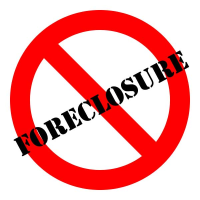Feds and Banks Go After Richmond for Its Eminent Domain Mortgage Plan

A couple days after two banks sued the city of Richmond to block its relief plan for homeowners facing possible foreclosure—using eminent domain to “refinance” troubled mortgages—the Federal Housing Finance Agency (FHA) upped the ante considerably by threatening to cut off federal funds if it proceeded.
The threat came just days after Richmond officials unveiled their plan, with Mortgage Resolution Partners, to seize the homes of owners who owe more on their mortgages than their homes are worth, refinance the loans and sell the homes back to them with an equity stake.
Dozens of cities, whose housing markets were destroyed by reckless bank and lending practices, are watching Richmond to see how its efforts fare.
Last Wednesday, Wells Fargo Bank and Deutsch Bank made good on threats by the financial industry to take legal action and sued in federal court, claiming that Richmond’s proposed action was an unconstitutional grab of private property for the purpose of enriching Mortgage Resolution Partners and itself.
The banks are suing as trustees on behalf of hundreds of bondholders whose names take up eight pages at the beginning of the lawsuit. It claims that the Richmond program “would result in a massive transfer of wealth from the beneficial owners of the mortgage loans . . . to a few preferred private parties.” The program would violate both the state and federal constitutions by disrupting the mortgage industry, it claims, a major sector of interstate commerce.
On Friday, the FHA said it would instruct U.S.-sponsored mortgage giants Fannie Mae and Freddie Mac to “limit, restrict or cease business activities” in any area that used eminent domain to seize underwater properties. That would be a death sentence for any city.
Nearly 90% of mortgages written in the country have the backing of Fannie and Freddie, which are heavily-regulated institutions that have private shareholders. Their mortgage guarantees reduce loan rates and are more critical than ever since private lenders fled the secondary housing market after the Great Recession of 2008 began.
Taxpayers bailed out Fannie and Freddie in 2008 after the companies, which have roots tracing back to the Great Depression of the 1930s, changed their conservative business models to compete with high-flying Wall Street. Shareholders reaped the benefits during the housing boom; taxpayers paid the price during the bust. They have been profitable since 2011, and are on a pace to pay off the bailout in a few years.
So Congress and the President have decided it’s a good time to pull back on government involvement and are mulling various ways of doing that. Because private lenders are still reluctant to make loans, loan rates would almost certainly go up if the government reduced its participation.
Home ownership is presently at a 17-year low.
–Ken Broder
To Learn More:
U.S. Warns against Eminent-Domain Mortgage Seizures (by Alejandro Lazo, Los Angeles Times)
Bondholders Sue Richmond over Threat to Seize Loans Through Eminent Domain (by Mark Calvey, San Francisco Business Times)
Banks Sue Richmond over Plan to Seize Mortgages by Eminent Domain (by Hudson Sangree, Sacramento Bee)
Richmond’s Plan to Beat Foreclosures: “Seize” Homes and Resell to Owners (by Ken Broder, AllGov California)
- Top Stories
- Controversies
- Where is the Money Going?
- California and the Nation
- Appointments and Resignations
- Unusual News
- Latest News
- California Forbids U.S. Immigration Agents from Pretending to be Police
- California Lawmakers Urged to Strip “Self-Dealing” Tax Board of Its Duties
- Big Oil’s Grip on California
- Santa Cruz Police See Homeland Security Betrayal in Use of Gang Roundup as Cover for Immigration Raid
- Oil Companies Face Deadline to Stop Polluting California Groundwater





